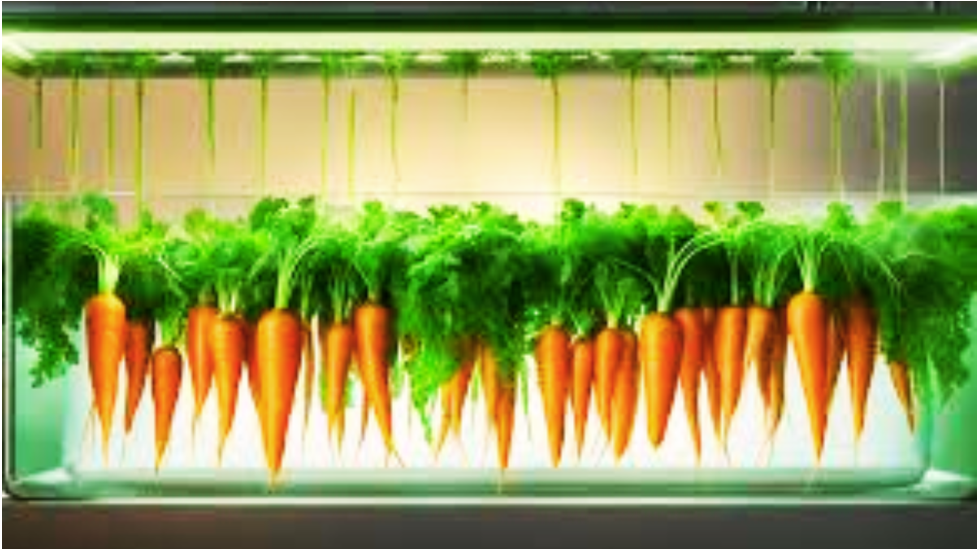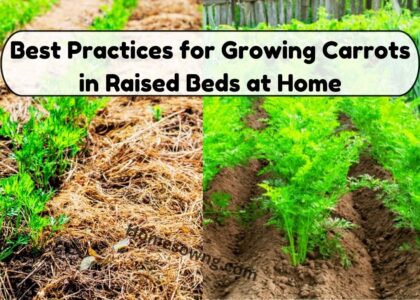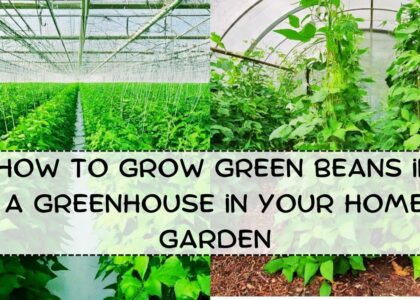Hydroponic gardening has gained popularity for its efficient use of resources and ability to produce high-quality crops. Carrots, typically grown in soil, can also thrive in a hydroponic system. Growing hydroponic carrots allows for better control over environmental conditions, leading to faster growth, higher yields, and nutrient-dense produce. In this guide, we will walk you through the steps to successfully grow hydroponic carrots.
Choosing the Right Carrot Varieties
Selecting the appropriate carrot variety is crucial for a successful hydroponic garden. Look for varieties known for their suitability to hydroponic systems, such as Napoli, Mokum, or Nelson. These varieties are known for their compact size, uniform shape, and excellent flavor.
Setting Up the Hydroponic System
Container and Growing Medium
Choose a hydroponic system that suits your space and preferences. Deep Water Culture (DWC) and Nutrient Film Technique (NFT) systems work well for growing carrots. Ensure that the container provides ample space for the roots to grow.
For the growing medium, consider using perlite or coconut coir. These mediums offer good aeration and moisture retention, essential for healthy carrot development.
Nutrient Solution
Prepare a balanced nutrient solution specifically designed for hydroponic carrots. Ensure that it contains essential macronutrients and micronutrients required for optimal growth. Follow the manufacturer’s instructions for mixing and application.
pH and EC Levels
Regularly monitor and adjust the pH levels of the nutrient solution to maintain a range between 6.0 and 6.5. Additionally, measure the Electrical Conductivity (EC) to ensure the right concentration of nutrients.
Planting Hydroponic Carrots
Seeds and Germination
Start with high-quality carrot seeds. Soak the seeds in water for a few hours before planting to encourage germination. Consider using a seedling tray or peat pellets for germination. Once the seeds sprout, transfer them to the hydroponic system.
Plant Spacing
Pay attention to proper spacing to prevent overcrowding, which can hinder root development. Aim for 2-3 inches between plants, ensuring adequate access to light and nutrients.
Lighting
Carrots require at least 12-16 hours of light per day. Use high-quality LED grow lights positioned at an appropriate distance to provide sufficient light intensity for optimal growth.
Maintenance and Care
Temperature and Humidity
Maintain a stable temperature between 60-75°F (15-24°C) and humidity levels around 50-70%. Adequate ventilation is essential to prevent issues like mold and diseases.
Watering
Hydroponic systems require regular monitoring of water levels. Keep the nutrient solution at the recommended level and ensure that it remains oxygenated to support healthy root development.
Pruning and Thinning
Regularly prune the carrot tops to encourage energy focus on root development. Thinning is essential to maintain proper spacing and promote healthy growth. Thin when the carrot tops reach a height of 2-3 inches.
Harvesting Hydroponic Carrots
Harvesting hydroponic carrots typically occurs 60-80 days after planting, depending on the variety. Look for the right color, size, and firmness before harvesting. Gently pull the carrots from the growing medium, being careful not to damage the roots.










